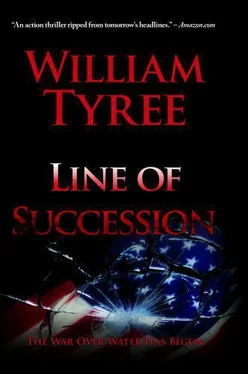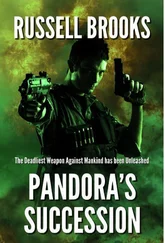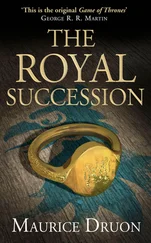William Tyree - Line of Succession
Здесь есть возможность читать онлайн «William Tyree - Line of Succession» весь текст электронной книги совершенно бесплатно (целиком полную версию без сокращений). В некоторых случаях можно слушать аудио, скачать через торрент в формате fb2 и присутствует краткое содержание. Год выпуска: 2010, Издательство: Massive Publishing, Жанр: Триллер, на английском языке. Описание произведения, (предисловие) а так же отзывы посетителей доступны на портале библиотеки ЛибКат.
- Название:Line of Succession
- Автор:
- Издательство:Massive Publishing
- Жанр:
- Год:2010
- ISBN:нет данных
- Рейтинг книги:3 / 5. Голосов: 1
-
Избранное:Добавить в избранное
- Отзывы:
-
Ваша оценка:
- 60
- 1
- 2
- 3
- 4
- 5
Line of Succession: краткое содержание, описание и аннотация
Предлагаем к чтению аннотацию, описание, краткое содержание или предисловие (зависит от того, что написал сам автор книги «Line of Succession»). Если вы не нашли необходимую информацию о книге — напишите в комментариях, мы постараемся отыскать её.
Line of Succession — читать онлайн бесплатно полную книгу (весь текст) целиком
Ниже представлен текст книги, разбитый по страницам. Система сохранения места последней прочитанной страницы, позволяет с удобством читать онлайн бесплатно книгу «Line of Succession», без необходимости каждый раз заново искать на чём Вы остановились. Поставьте закладку, и сможете в любой момент перейти на страницу, на которой закончили чтение.
Интервал:
Закладка:
Dobbs’ red phone rang. He knew immediately from the urgent voice on the other end that this wasn’t a drill. He listened wordlessly, hung up, and turned to the room of controllers.
“Car bomb in Monroe, West Virginia,” he barked. The controllers stared back at Dobbs blankly, unsure what a car bomb had to do with airspace security. “Assume threat level red,” Dobbs said. “Keep the first shift patrols up,” he said, referring to the fighter planes that, since 9/11, had been timed with the early a.m. wave of passenger jets rolling out of Regan National Airport, Dulles, BWI, Boston Logan, Newark, JFK and LaGuardia. The idea was to have a critical mass of fighter jets on the east coast in case of attack. They were prepared, if necessary, to intercept hijacked planes at the times of heaviest traffic. “Scramble the second crew to fill the gaps.”
The controllers got on the radio and began notifying their patrols. Dobbs put on his headset and radioed the news to Marine One, advising them to pick up their airspeed and watch their altitude.
Frederick County, Maryland
11:07 a.m.
The forest was dead silent save for a very distant rumble of road noise that appeared only as gusts of breeze blew from the southwest. Chris Abrams and his four-man USOC crew were positioned roughly twenty yards apart, high in the canopies of beetle-ravaged hickory trees. The men had backpacked into the Maryland woods the night before, dressed as average weekend warriors looking for a trout stream and a place to camp. But in actuality their packs contained cordless drills, tree stands typically marketed to deer hunters, climbing spikes, MREs and, most importantly, shoulder-fired Stinger missiles. At an awkward five-foot long and thirty-six pounds each, the missiles were carried in hard shell fly rod cases that had been substantially enlarged and elongated for the mission.
Abrams listened intently for the sound of rotors. At a quarter past the hour, flight plan Slasher was due to bring the President’s helicopter directly overhead. With five shooters and four helicopters, Abrams had eliminated the need to identify Marine One from its decoys. They would simply destroy all of them.
At six-foot-six, Abrams was easily the crew’s tallest member. And as his sleeveless vest revealed, he also appeared to be the most ripped. But in actuality, Abrams wasn’t as healthy as he appeared. His body fat was perilously low, and in addition to adjusting the medication that kept the HIV virus in check, his doctor had just put him on a ten thousand calories-per-day diet — as much as some Olympic athletes. He was one of the few 34-year-old men in America for whom dessert was a necessity.
A Carolina Wren landed in the tree next to Abrams and launched into a loud, looping melody. Abrams shook his head and rubbed his shaved scalp. A reasonably quiet forest was essential to the mission. The rust-bellied, notoriously high-decibel wrens had pumped out a bumper crop this year all over the Southeastern U.S., and Abrams had brought a pump-action air pistol specifically for this reason. He pulled it out for the sixth time this morning, pumped it several times, leveraged it at the wren’s white eye stripe and fired a pellet deftly into it. The songbird tumbled from the tree, gasping and fluttering on its way to rest in a heap of feathers beside the others that Abrams had killed that morning.
At exactly 11:10 a.m., Abrams pulled out a cocktail of HIV and metabolism-slowing medicine. He swallowed the four pills without water and pulled out a protein packet, knowing it might be at least two hours before he would have time to eat again. He was already thinking about his next meal. He wanted to celebrate. He wanted short ribs from Rocklands Barbecue over on Wisconsin Avenue, where the smoke coming off the grill was so powerful that you would smell like barbecue for two days. It was the best barbecue in D.C. The best anywhere.
But Rocklands was off-limits now. Earlier in the year, Abrams had eaten there every time he went to the city to meet his Pentagon contacts. The last time, the server had surprised him by asking to put Abrams’ picture on the wall. He said that the staff had taken to calling Abrams “Trip,” short for “Triplicate,” because he always ordered and ate three courses. But Abrams didn’t let them take his picture. He wouldn’t even tell them his name. He just took his three bags and got the hell out of there. After that, he never visited anyplace more than once, no matter how good the food was.
Now the faint mechanical humming — like a thousand far-away bees — registered in Abrams’ eardrums, growing louder by the second. To Abrams’ trained ear, it was the unmistakable sound of four VH-71 Kestrel helicopters flying in formation. They were slightly ahead of schedule. He stuffed the granola bar in his pocket and readied himself.
“I hear rotors,” Abrams said in Muskogee into the Bluetooth on his lapel. He repeated the phrase to make sure there were no misunderstandings. His four-man crew each knew only about fifteen hundred words of Muskogee, and he was far from fluent himself.
While these woods were typically unbearably thick with foliage in summer, this area had been chosen specifically for its thin canopies, the result of a beetle blight the year earlier that had killed off about half the area’s hickories. Abrams had been assured that Marine One would fly directly overhead. They were just outside the six-mile no-fly zone, so they were unlikely to be spotted by patrolling F-35s.
Abrams listened closely, timing the growing decibel level of the rotors with his watch. “They’re coming too fast,” he said in broken Muskogee. He and his men had trained in these very woods during two previous Presidential fly-overs. During those sessions, the President’s airborne convoy had flown 120 mph at most. He could only assume that some other part of the operation, which he had been in the dark of, had tipped Marine One off.
The rotor sound grew loud enough for all five men to hear it. Timing would be critical. Given the choppers’ low altitude and relatively high speed, they would have a second or less for the Stinger to lock onto its target, emit its distinctive high-pitched buzz, and pull the trigger. Plus, they would have to fire at roughly the same time, ensuring that all four VH-71s were destroyed. There would be no opportunity for second chances. Should one missile strike a target too early, the other heat-seeking Stingers could converge on the exploded target, or worse, the real Marine One could release its anti-SAM countermeasures and escape amidst the mid-air fracas.
He stashed his air pistol, pulled out his field scope and watched as his men took the Stingers out of their five-foot long tubes, rose on their tree stands, placed the Stingers on their right shoulders, and pointed them skyward. Abrams’ was like all the others, except for one detail — he had a tiny camera mounted on his scope.
“Get ready boys,” Abrams growled in Muskogee. “Here they come.”
Aboard Marine One
11:07 a.m.
“This is Santa Monica and Seattle all over again!” President Hatch complained into his skyphone. He had just learned of the bombing in Monroe. Dressed in a tweed blazer and dark denim jeans — Camp David attire was decidedly informal — the President sat aboard Marine One en route to meet the Iranian Ambassador. They were accompanied by three identical VH-71 Kestrels flying in an inverted V formation. To minimize their exposure, the pilots were maxing out at 190 mph and flying so low that they practically skimmed the tops of the power lines.
The unlucky bureaucrat on the receiving end of the President’s rant was Homeland Security Deputy Director Devon Davis. Davis was on vacation in Fort Lauderdale, and had only learned of the incident seconds before the President himself. Davis’ boss had been fired after the Seattle car bombing earlier in the year, and Davis was the Acting Director until a replacement was found.
Читать дальшеИнтервал:
Закладка:
Похожие книги на «Line of Succession»
Представляем Вашему вниманию похожие книги на «Line of Succession» списком для выбора. Мы отобрали схожую по названию и смыслу литературу в надежде предоставить читателям больше вариантов отыскать новые, интересные, ещё непрочитанные произведения.
Обсуждение, отзывы о книге «Line of Succession» и просто собственные мнения читателей. Оставьте ваши комментарии, напишите, что Вы думаете о произведении, его смысле или главных героях. Укажите что конкретно понравилось, а что нет, и почему Вы так считаете.












